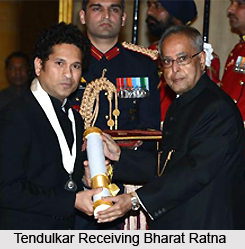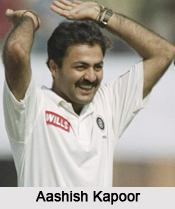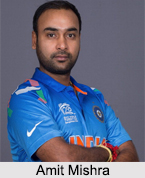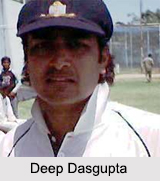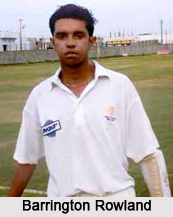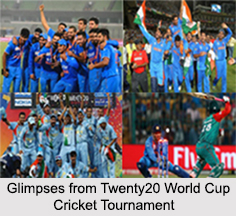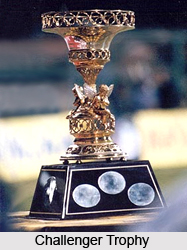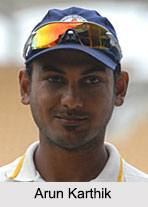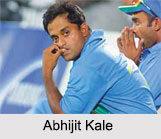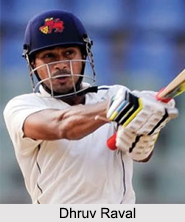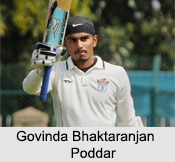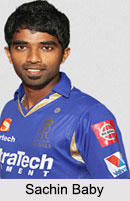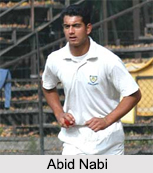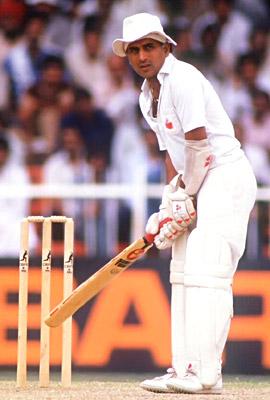 Sunil Gavaskar as captain of the Indian Cricket team is an event that unfurled in various stages. He was the captain of the team on several occasions in the late 1970`s and early 1980`s. Though his record as a captain is not as impressive as his personal career graph as a player, he has led India to victory on different occasions. He captained India to nine victories and eight losses, but most of the games were drawn.
Sunil Gavaskar as captain of the Indian Cricket team is an event that unfurled in various stages. He was the captain of the team on several occasions in the late 1970`s and early 1980`s. Though his record as a captain is not as impressive as his personal career graph as a player, he has led India to victory on different occasions. He captained India to nine victories and eight losses, but most of the games were drawn.
The very first time that Gavaskar had any experience of captaining the team was in the series against New Zealand (1975-76) which was supposed to have been led by Bishen Singh Bedi. Bedi pulled a muscle during practise at Auckland, and consequently vice-captain Gavaskar had to lead the game. He made the most of the opportunity, and even went on to score a century as did debutant Surinder Amarnath. India got 414 after restricting the kiwis to 266 through the magnificent bowling of Chandra, who had figures of 6 for 94. Thus the first test under Gavaskar`s captaincy was won by India. Bedi returned to lead in the second test at Lancaster Park, Christchurch.
After the India-Pakistan match, Bedi was dropped as captain and Gavaskar succeeded him to the position. His first series as captain was the West Indian tour of India, 1978-79. The match was to have been a six-test series. It was another prolific series for Gavaskar. He managed to pull up his records even further. His 205 in the First Test in Mumbai made him the first Indian to score a double century in India against the West Indians. He added a further 73 in the second innings of a high scoring draw. After failing to score in the Second Test, he scored 107 and 182 not out in the Third Test at Kolkata, another high scoring draw. This made him the first player in Test history to achieve centuries in both innings of a Test three times. He managed only 4 and 1 in the Fourth Test in Chennai as India forced the only win of the series. He posted a fourth century for the series, scoring 120 in the Fifth Test at Delhi, becoming the first Indian to pass 4000 Test runs. He managed to aggregate 732 in nine innings, averaging 91.50. He was successful as a captain too, securing a 1-0 win for India. It was India`s first series triumph at home over the West Indies.
Despite this impressive and successful stint as captain, Gavaskar was stripped of the captaincy when India toured England for a four-test tour in 1979. The official reason that was given for this choice is that Srinivas Venkataraghavan was picked as he was more experienced on English soil. However, it was widely believed that he was dropped due to his increasing associations with Kerry Packer and the possibility of his defection to World Series Cricket. In the first three tests, he played consistently, scoring half centuries. In the fourth test at the oval, he produced his finest innings. India was 1-0 down needed to reach a world record target of 438 to square the series. They reached 76/0 at stumps on the fourth day. Led by Gavaskar India made steady progress to be 328/1 with 20 overs remaining on the final day with a record breaking victory still possible. India finally ended with nine runs short with two wickets in hand when stumps were drawn. Gavaskar ended the series with 542 runs at 77.42 and was named as one of the Wisden Cricketers of the Year.
Sunil Gavaskar`s second innings as captain came in the 1979-80 reason. It was a gruelling season with six Test home series against both Australia and Pakistan. The first two Tests against Australia were high scoring draws where only 45 wickets fell, with India taking a first innings lead in both after making scores over 400. India broke through for a 153 run win in the Third Test at Kanpur, where Gavaskar scored 76. In the fourth test at Delhi, India was unable to convert a 212 run first innings lead, resulting in a draw. He made 115 in the Fourth Test in Delhi, where India was unable to convert a 212 run first innings lead, resulting in a draw. After another stalemate in the Fifth Test, Gavaskar scored 123 in the Sixth Test in Mumbai, where Australia collapsed by an innings after India posted their fourth first innings in excess of 400 for the series. The series against Pakistan was again a very high scoring one. There were a total of four draws, three of which did not reach the fourth innings. India won the Third and Fifth Tests in Mumbai and Chennai. At Chennai he made 166 in the first innings and was unbeaten on 29 when India brought up the winning runs.
However, the roller-coaster ride of his captaincy continued when, after having secured the series 2-0, Gavaskar was made to step down from captaincy for the sixth test, which anyway ended in a draw. This occurred because of his refusal to tour the West Indies for a series immediately afterwards, requesting instead for a rest. Gundappa Viswanath was appointed so that he could prepare his leadership skills for the tour. In the end the tour did not go ahead as the West Indian board were not interested in a team without Gavaskar. The season ended with one-off test against England in Mumbai, which India lost. In the thirteen tests in that season, Gavaskar made a total of 1027 runs at 51.35 with three centuries and four half centuries.
Gavaskar again returned as captain for the 1980-81 season for the Australian tour. This stint did not prove to be too productive. He managed only 118 runs at 19.66 in the three Tests against Australia. An incident occurred here which raised a number of questions. When Gavaskar was given out by the Australian umpire Rex Whitehead, he asked his fellow-opener Chetan Chauhan to walk off. However, the team manager S. K. Durani persuaded Chauhan to go back and bat, and India went on to win the match by 59 runs as Australia collapsed to 83 in their second innings. The series was drawn 1-1. The three-test series that followed in New Zealand marked the beginning of a barren run of 19 tests under the captaincy of Gavaskar of which India won one and lost five. India lost the series to New Zealand 1-0, to which Gavaskar contributed 126 runs at 25.2 He finished the Oceania tour with 244 runs at 22.18, with only two half centuries.
The next season, 1981-82, featured a hard-won series over England, 1-0 in six tests. The first test was won by India in Mumbai before five consecutive draws resulted, four of which did not even reach the stage of the fourth innings. In the second test at Bengaluru, Gavaskar made 172 and reached a half century on three further occasions, to make up a total of 500 runs at 6.25. India reciprocated England`s visit in 1982 for a three Test series, which was lost 1-0. Gavaskar made 74 runs at 24.66 but was unable to bat in the Third Test. The1982-83 subcontinental season went well for Gavaskar on a personal, but did not spell much success for the team as a whole. India played in twelve Tests, losing five and drawing seven. Though he managed to make 155 in a one-off test against Sri Lanka in Chennai, the Indian team was unable to defeat their novice opponents. The draw marked the beginning of a winless summer. The tour to Pakistan started well enough, with the first test ending in a draw at Lahore. Here, Gavaskar managed to score 83. However, tin the three matches that followed, Pakistan managed to defeat India. Though Gavaskar managed an unbeaten 127 in the second innings and forced Pakistan to a run chase, the other two losses were substantial.
Following this, Gavaskar was again removed as captain after the 3-0 loss. Kapil Dev was now made captain of the Indian cricket team. Despite the team`s poor form, he managed to retain his productivity, with 434 runs at 47.18 with a century and three half centuries. His tour to the West Indies saw him perform chiefly as a batsman.
The next couple of matches saw the conferring of captaincy again to Gavaskar and the dropping of Kapil Dev. The 1983-84 season started with a home series against Pakistan, with all three matches being drawn. Gavaskar scored an unbeaten 103 in the First Test in Bengaluru, and made two further half centuries to total 264 runs at 66. This was followed by a six Test series against the touring West Indies at the height of their powers. Gavaskar put up a superb performance in this series. He went on to score 121, his 29th Test century in 94 balls, equalling Don Bradman`s world record. He also passed 8000 Test runs in the innings, and was personally honoured by Indira Gandhi, the Prime Minister of India at the ground. Gavaskar`s 90 in the Third Test at Ahmedabad saw him pass Geoff Boycott`s Test world record of 8114 career runs was insufficient to prevent another defeat. During the Fifth Test in the series, India was defeated by an innings at Calcutta to concede a 3-0 series lead. In the Sixth Test in Chennai, he compiled his 30th Test century, with an unbeaten 236 which was the highest Test score by an Indian. It was his 13th Test century and third double century against the West Indies. He had aggregated 505 at 50.50 for the series. As a result of India`s unsuccessful stint-29 consecutive test losses- Kapil was sacked as captain and Gavaskar resumed leadership at the start of the 1984-85 season. The two-test series in the tour of Pakistan resulted in two more draws, with Gavaskar compiling 120 runs at 40. India`s first victory in 32 matches came at the First test against England in Mumbai. However, England went on to square the series 1-0 in Delhi before another controversial Third Test at Eden Gardens in Kolkata. The match was drawn, but India conceded the series after losing the Fourth. The series ended 1-2, and with a display of 140 runs at 17.5, Gavaskar resigned, although he had already announced his into to relinquish the leadership before the series.
As captain of the Indian cricket team, Gavaskar looked a born leader. He showed a good understanding of good bowling and fielding during the period of his apprenticeship under Ajit Laxman Wadekar. He himself was an outstanding performer in the slips, where he finished up with 108 catches. In the early years of his captaincy, he faced a lot of criticism for his conservative techniques and was often faulted for his virtual neglect of spin bowlers. However he proved his mettle and expertise in the various matches that were played under his leadership. His constant appointment and removal as captain of the team proved the capabilities of the sportsman who could just not be ignored by the selectors as a fitting candidate for leading the Indian team.

